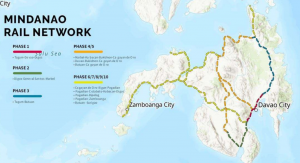The funding that the Autonomous Region in Muslim Mindanao (ARMM) is getting for education has helped the region improve its economy, aside from its impact on helping the children get better education, a top official of the region said.
Because of the huge amount of money for education circulating in the region, said lawyer Rasol Y. Mitmug Jr. during a press conference here Tuesday, the money has pump-primed its economy that last year, the region achieved a 7.3% growth in its gross domestic regional product, the seventh fast growing economy in the country.
The regional agency has gotten an annual budget of about P500 million and that it has also received help both from the national government and the international funding agencies.
The Australian government-funded Pathways to Peace in Mindanao is P3.6-billion nine-year program designed to improve the basic education in the region and the successor of the Basic Education Assistance for Muslim Mindanao (BEAM-ARMM).
Other funding agencies that have been implementing programs on education in the region include Plan International and the United Nations Children’s Fund, which is partly helping in Tahderriyah, an educational program designed for children not of school ages.
Also helping the region achieved high economic growth has been the implementation of the peace agreement between the government and the Moro Islamic Liberation Front which signed an agreement in 2014.
“We have been fortunate because the peace process has been holding (as this has lessened the incidents of children leaving schools due t o the armed conflict,” he said, although he pointed out that there are still evacuation incidents owing to the pocket battles between the government and the other armed groups, particularly the Bangsamoro Islamic Freedom Fighters, a group that split from the MILF.
He said this has also allowed the agency to expand its reach to the hinterland parts of the region which previously could not be reached because of the armed conflict. “These areas were previously inaccessible,” he said.
This developed as the agency has started assessing the status of education in the region as it is preparing a transition plan so that the impact is cushioned if the region transitions to become the Bangsamoro, the entity expected to replace the region if the Bangsamoro Basic Law is approved.
Mitmug said that the regional agency is focusing on making sure that its documents and the data bases are in order.
“This (transition) is a huge struggle (on the part of the agency),” said Mitmug, pointing out that in the past, documents were not passed to the next administration and that there was even no basis in developing new programs for the region.
He said the regional agency has also come up with structured plans based on the recommendations of either government or donor agencies that are implementing programs in the region, amng them the BEAM-ARMM.
Based on its website, BEAM-ARMM has helped the regional education “to improve management systems…including coordinating development assistance and local initiatives to improve the quality of education.
However, he said the region has continued to face challenges brought about by natural calamities and the presence of the armed groups.
On the calamities, some schools have become evacuation centers during floods and when there skirmishes.
In these cases, Mitmug said the regional agency comes up with the temporary learning spaces in cases when the problem goes beyond 15 days. To implement the mechanism, the agency usually coordinates with the local government concerned as well as the Department of Social Welfare and Development.


